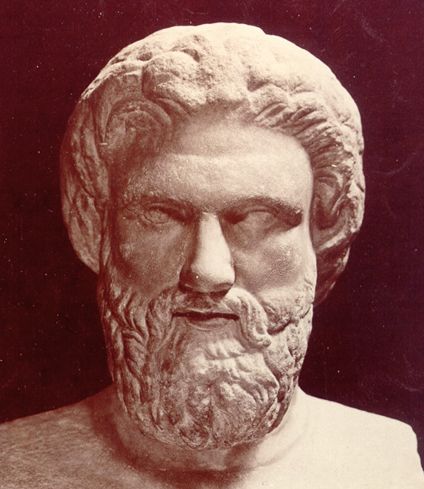The directory «Plots»
Aristophanes (Αριστοφάνης)
(450 –385 BC)

Greek playwright, Athenian comic poet, greatest of the ancient writers of comedy. His plays, the only full extant samples of the Greek Old Comedy, mix political, social, and literary satire. The direct attack on persons, the severity of invective, and the burlesque extravagances made the plays fitting for the festival of Dionysus. Aristophanes was conservative in all things, hence he distrusted sophistry and Socrates alike, satirized Euripides’ art as degenerate, and deplored the tendency to excessive imperialism that ruined Athens in the Syracusan expedition. The typical plan of an Aristophanic comedy is simple—the protagonist undertakes seriously some preposterous project, and the play is an elaboration of his success or failure. Despite the absurdity of the situation, Aristophanes’ characters are real as types; their verisimilitude comes from their perfectly natural behavior in unnatural circumstances. Aristophanes’ Greek is exceptionally beautiful, and many of his choruses are among the finest lyric pieces in Greek literature. His careful diction and his ability to characterize in a few words are remarkable, and he shows himself especially astute in his parodies of Euripides. Eleven of his plays survive: The Acharnians (425 B.C.), an attack on the Peloponnesian War; The Knights (424), a political satire on the demagoguery of the period; The Clouds (423), a satire on the sophists and on Socrates; The Wasps (422), a satire on the Athenian passion for litigation; The Peace (421), a defense of the Peace of Nicias; The Birds (414), an escape into an amazing imaginary kingdom; Lysistrata (411), in which the Athenian women boycott their husbands to end a war; The Thesmophoriazusae or The Women at Demeter’s Festival (411), in which the women conspire to ruin Euripides because of his misogyny; The Frogs (405), a literary satire involving Aeschylus and Euripides; The Ecclesiazusae or The Women in Politics (c.392), in which the women take over the government; and Plutus (388), in which the blind god of wealth recovers his eyesight and distributes the gifts of fortune more equitably.
Greece, 1987, Christopher Nezer in «The Wasps»